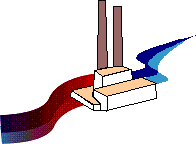Electric Power Research Institute

Since 2003, the Electric Power Research Institute (EPRI) has held 5 workshops on Thermal Ecology and Regulation issues to support EPRI’s program on Clean Water Act (CWA) Section 316(a) issues, which is specifically related to thermal discharges. Tetra Tech has assisted EPRI with coordinating and executing these workshops, including serving on the steering committee, coordinating speakers, preparing and disseminating conference materials to attendees, and writing the Executive Summary for the workshop proceedings, which summarized the topics and key findings from the workshop. For each workshop, Tetra Tech wrote and presented a paper summarizing recent developments in thermal discharge-related issues at power plants, which included:
An update on regulatory activities at the federal, regional, and state levels, which involved gathering information from the EPA and each state on any recent updates to their temperature standards or thermal discharge guidance.
An update on regulatory activity related to thermal discharge permits, including controversies and legal actions, and gathered and presented information on critical situations related to thermal discharges at power plants that resulted in concern, reduction of power production, or shutdowns.
A summary of the trending potential stressors on thermal discharge compliance. These topics varied by conference and included a survey of recent literature on thermal response of aquatic species in their native habitat, including topics of stress and recovery, advancements in telemetry and other tools, biothermal modeling, laboratory vs. field-derived data, rate of temperature change, and databases and bibliographies; literature survey on climate variability, its impact on rising water temperatures and reduced water availability, and the potential impact on power plant discharges; on how a rise in Total Maximum Daily Loads (TMDLs) for temperature and dissolved oxygen may impact a discharger’s ability to receive a variance under Section 316(a); and on thermal discharge impacts to threatened and endangered species.
Contact
Joe Orozco
(925) 280-7424





